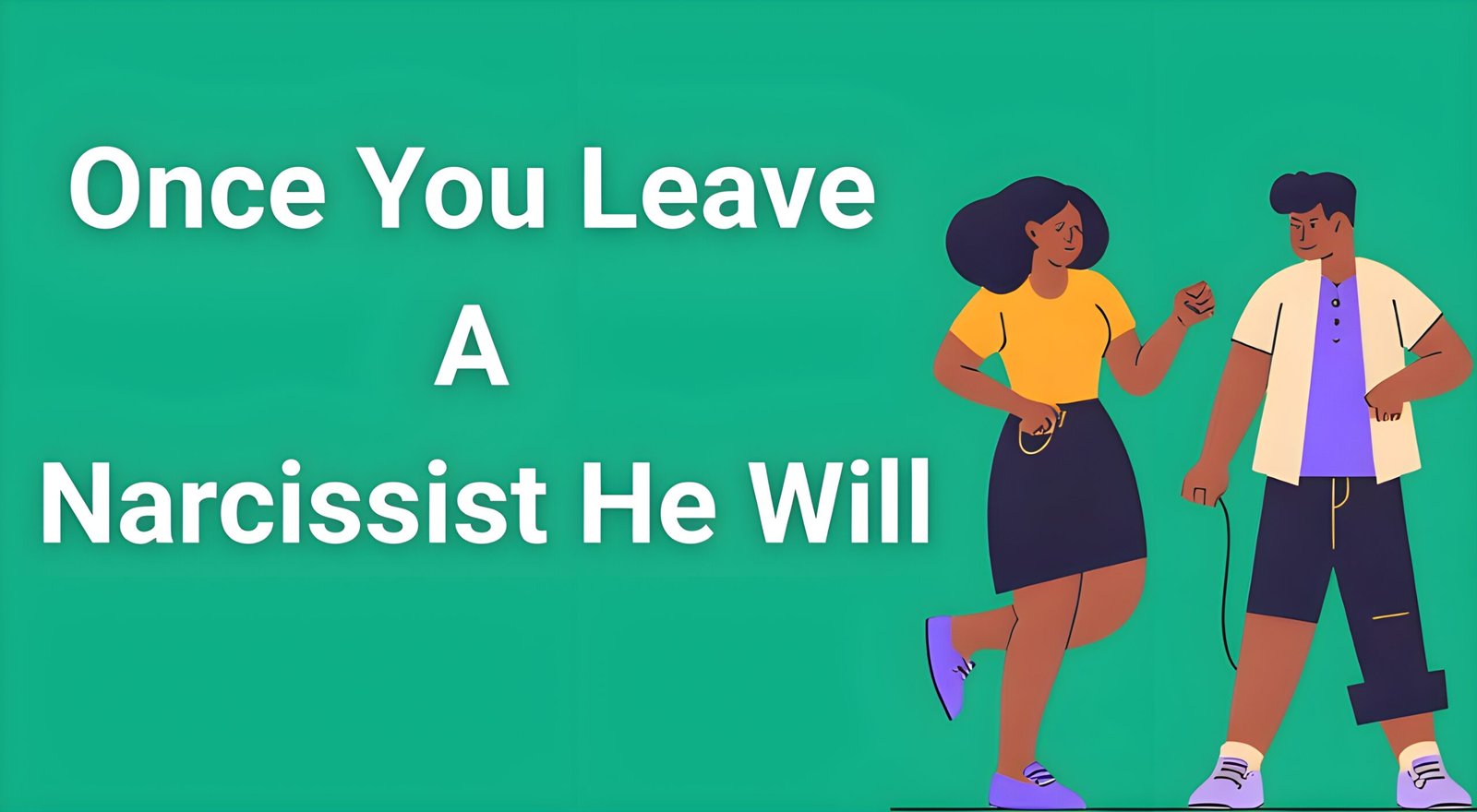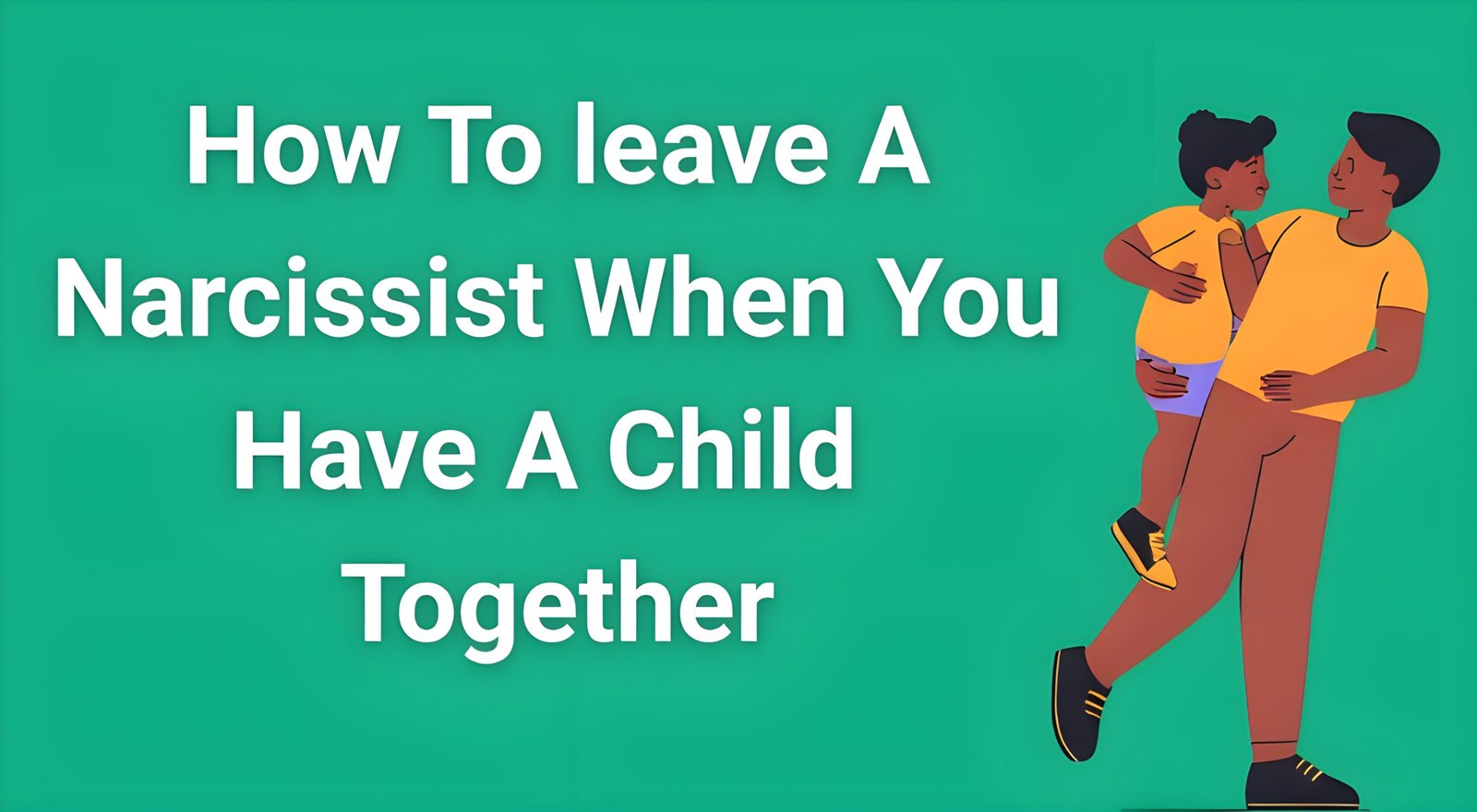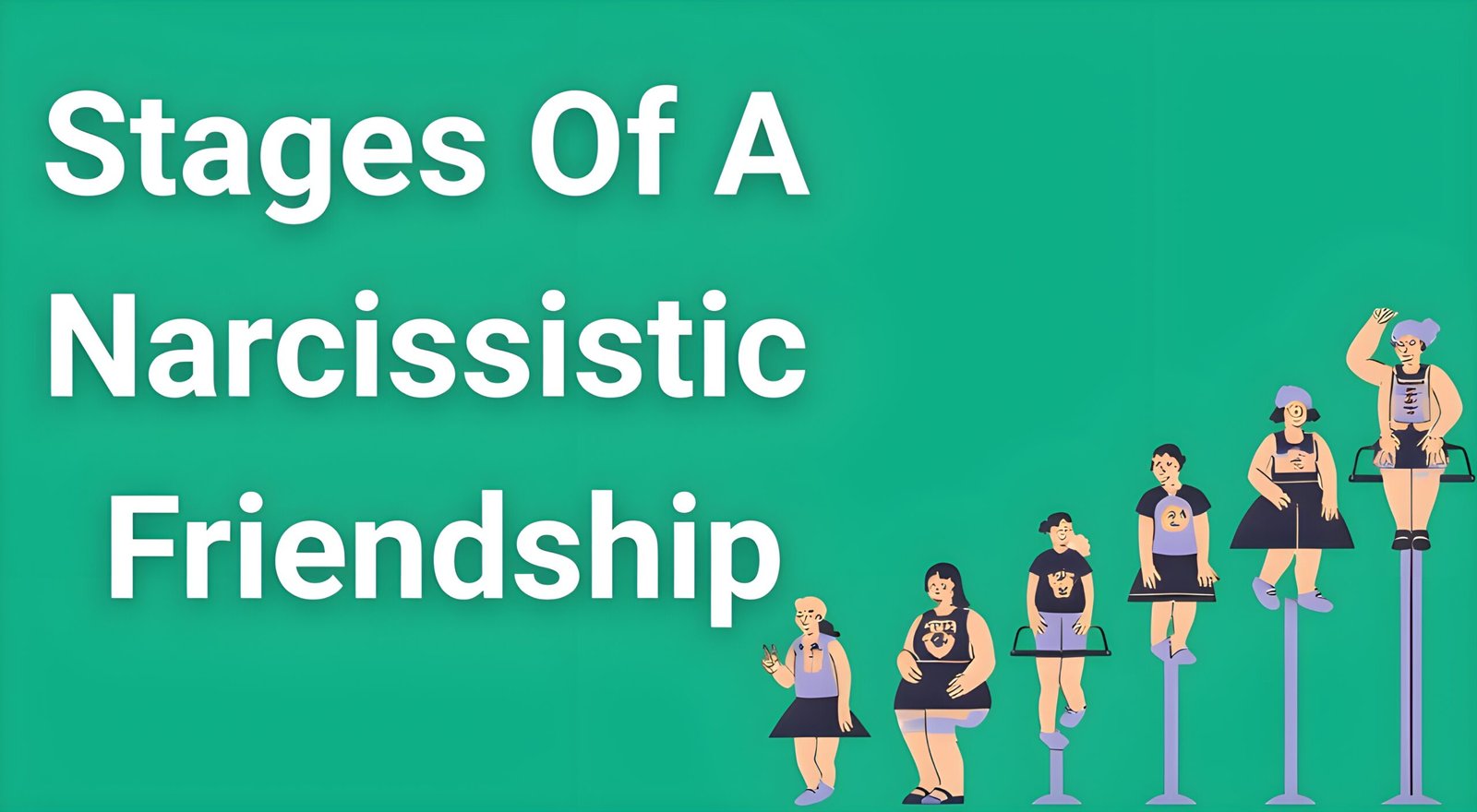When you finally gather the courage to leave a narcissistic relationship, you might expect relief, freedom, or at least some peace. The heartbreaking reality? Once you leave a narcissist he will unleash a campaign of psychological warfare that can feel more intense than anything you experienced during the relationship itself.
- The Psychology Behind Why Narcissists Can’t Let You Leave
- 1. He Will Launch an Immediate Hoovering Campaign
- 2. He Will Orchestrate a Devastating Smear Campaign
- 3. He Will Monitor Your Every Move Through Social Media
- 4. He Will Find New Supply Suspiciously Quickly
- 5. He Will Use Children as Psychological Weapons
- 6. He Will Attempt Financial Manipulation and Control
- 7. He Will Escalate to Threats and Intimidation
- 8. He Will Never Truly Accept the Relationship Is Over
- Understanding the Deeper Patterns: Why This Knowledge Matters
- The Importance of Professional Support
- Moving Forward: From Survivor to Thriver
- Frequently Asked Questions
- Conclusion: Your Freedom Is Worth Fighting For
Understanding exactly what behaviors to expect isn’t about living in fear—it’s about empowering yourself with knowledge so you can protect your sanity, safety, and future. The patterns narcissists follow when abandoned are as predictable as they are disturbing.
The Psychology Behind Why Narcissists Can’t Let You Leave
Before diving into specific tactics, it’s crucial to understand the psychological mechanism driving these behaviors. Once you leave a narcissist he will experience what experts call “narcissistic injury”—a profound wound to their carefully constructed superior self-image.
To a narcissist, you weren’t a partner; you were “narcissistic supply”—a source of attention, validation, and control that fed their ego. Your departure doesn’t just end a relationship; it threatens their entire psychological framework.
This injury triggers their survival instincts, leading to behaviors that range from manipulative to genuinely dangerous. Knowing this helps you recognize that nothing they do afterward is about love—it’s about regaining control over their damaged ego.
1. He Will Launch an Immediate Hoovering Campaign
Once you leave a narcissist he will begin “hoovering”—a term derived from the Hoover vacuum brand, describing how they attempt to suck you back into their orbit.
The Three Phases of Hoovering:
Phase 1: Love Bombing Redux Within days or even hours of your departure, expect an avalanche of romantic gestures that mirror the early days of your relationship. He’ll send flowers, write heartfelt letters, promise therapy, and swear he’s “finally realized” how much you mean to him.
Phase 2: Bargaining and Promises When love bombing fails, he’ll negotiate like his life depends on it. Expect promises of marriage, children, career changes, or anything else you’ve mentioned wanting. These aren’t genuine commitments—they’re carefully crafted bait designed to reel you back in.
Phase 3: Emotional Manipulation If romantic gestures fail, he’ll weaponize your emotions. Expect claims about his deteriorating mental health, threats of self-harm, or stories about how he “can’t live without you.” This phase specifically targets your empathy and sense of responsibility.
How to Protect Yourself:
- Block all communication channels immediately
- Prepare for contact through mutual friends and family
- Document all hoovering attempts for potential legal protection
- Remember: These behaviors prove the relationship was about control, not love
2. He Will Orchestrate a Devastating Smear Campaign
Perhaps the most psychologically damaging behavior—once you leave a narcissist he will systematically destroy your reputation among mutual friends, family members, and even professional contacts.
Common Smear Campaign Tactics:
Playing the Victim He’ll position himself as the wounded party, claiming you abandoned him during his “darkest hour” or that you were abusive, manipulative, or mentally unstable. The lies will be so convincing that people you trusted may begin questioning your version of events.
Selective Truth-Telling Narcissists are masters at weaponizing your vulnerabilities. Private confessions about your insecurities, past trauma, or mistakes become ammunition in his campaign to paint you as unstable or untrustworthy.
Flying Monkeys Deployment He’ll recruit well-meaning friends and family members to pressure you into reconciliation. These “flying monkeys” genuinely believe they’re helping heal a misunderstanding, not participating in psychological abuse.
Protection Strategy:
The most effective response to a smear campaign is often dignified silence. Focus your energy on the people who truly know your character rather than trying to convince everyone of the truth.
3. He Will Monitor Your Every Move Through Social Media
Once you leave a narcissist he will become a digital detective, obsessively monitoring your online presence for signs of your emotional state, new relationships, or vulnerabilities he can exploit.
Digital Stalking Behaviors:
- Creating fake social media accounts to view your profiles
- Enlisting friends to screenshot your posts and stories
- Analyzing your activity patterns to predict your emotional state
- Using your location services to track your physical whereabouts
Social Media Safety Protocol:
- Immediately block him on all platforms
- Review your privacy settings and make all accounts private
- Be cautious about what you share during the vulnerable post-breakup period
- Consider taking a temporary social media break to protect your healing process
If you’re struggling with obsessive thoughts about checking his social media or feeling addicted to the relationship despite knowing it was toxic, you might be experiencing trauma bonding. The 30-Day Trauma Bond Recovery Workbook provides a science-based, day-by-day system to break these neurological patterns that keep you mentally trapped.
4. He Will Find New Supply Suspiciously Quickly
One of the most emotionally devastating realizations is how quickly narcissists move on. Once you leave a narcissist he will often have a new relationship within days or weeks, leading you to question whether your entire relationship was meaningless.
The New Supply Timeline:
Immediate Rebound (Days 1-7) Many narcissists have backup options cultivated throughout the relationship. Don’t be shocked if he’s publicly involved with someone new before you’ve even processed the breakup.
The Showcase Phase (Weeks 2-8) He’ll deliberately flaunt the new relationship on social media, at places you frequent, or through mutual friends. This isn’t about genuine happiness—it’s calculated to trigger jealousy and regret.
The Devaluation Preview (Months 2-6) Pay attention to how he treats his new supply. The same patterns that destroyed your relationship will eventually emerge, validating that the problem was never you.
Emotional Protection:
Understanding that this rapid replacement reflects his inability to form genuine connections—not your inadequacy—is crucial for healing. His new relationship will inevitably follow the same toxic cycle you escaped.
5. He Will Use Children as Psychological Weapons
If children are involved, once you leave a narcissist he will likely weaponize parenting arrangements to maintain control over your life indefinitely.
Common Child Manipulation Tactics:
- Inconsistent visitation to disrupt your stability
- Pumping children for information about your personal life
- Playing the “fun parent” to position you as the strict, mean one
- Using custody arrangements to force continued contact
Protecting Your Children:
- Document all concerning behaviors for potential custody proceedings
- Consider involving a child psychologist familiar with narcissistic abuse
- Maintain consistent, loving communication with your children about the situation
- Explore supervised visitation if safety becomes a concern
For those navigating complex situations where immediate departure isn’t possible due to children, finances, or other circumstances, specialized resources like “How to Survive When You Can’t Leave Yet” provide crucial strategies for protecting yourself and your children while developing a safe exit plan.
6. He Will Attempt Financial Manipulation and Control
Financial abuse often intensifies after separation. Once you leave a narcissist he will use money as a tool to force your return or punish your independence.
Financial Control Tactics:
- Hiding or moving shared assets
- Refusing to pay agreed-upon support
- Sabotaging your employment or credit rating
- Using expensive legal proceedings to drain your resources
Financial Protection Strategy:
- Document all shared finances before leaving if possible
- Establish independent bank accounts and credit cards
- Consult with a financial advisor experienced in divorce proceedings
- Connect with legal aid organizations if resources are limited
7. He Will Escalate to Threats and Intimidation
As other tactics fail, once you leave a narcissist he will often escalate to more aggressive behaviors designed to terrify you into submission.
Escalation Warning Signs:
- Showing up at your workplace or residence unannounced
- Threats against you, your loved ones, or your pets
- Vandalism of your property
- Explicit threats of physical harm
Safety Planning Essentials:
- Create a detailed safety plan with trusted friends or family
- Document all threatening behavior for potential restraining orders
- Vary your routines to maintain unpredictability
- Consider involving law enforcement if threats escalate
Remember: These behaviors represent a dangerous loss of control. If you’re experiencing threats or fear for your safety, reaching out to domestic violence resources or law enforcement isn’t an overreaction—it’s necessary protection.
8. He Will Never Truly Accept the Relationship Is Over
Perhaps the most psychologically exhausting reality is that once you leave a narcissist he will never fully accept your decision to end the relationship. Years later, he may still attempt contact during your vulnerable moments—holidays, anniversaries, major life events, or personal crises.
Long-Term Persistence Patterns:
Anniversary Hoovering Expect contact attempts around relationship anniversaries, your birthday, holidays, or other emotionally significant dates.
Crisis Exploitation He’ll monitor your life for opportunities to “offer support” during difficult times—job loss, family emergencies, or health crises become openings for manipulation.
Milestone Sabotage Major positive events—promotions, new relationships, weddings—often trigger renewed contact attempts designed to disrupt your happiness.
Long-Term Protection Strategy:
Building a life so fulfilling and surrounded by genuine support that his attempts at contact become obviously pathetic rather than tempting is the ultimate victory. This requires consistent work on healing and understanding the patterns that made you vulnerable initially.
Understanding the Deeper Patterns: Why This Knowledge Matters
If you’re reading this and recognizing these patterns, you’re likely experiencing a mixture of validation and terror. That’s completely normal. Once you leave a narcissist he will follow these predictable patterns because narcissistic personality disorder creates consistent behavioral responses to abandonment.
Understanding these patterns serves three crucial purposes:
Validation of Your Experience Recognizing that thousands of others have faced identical behaviors confirms that your concerns are legitimate and your decision to leave was justified.
Preparation and Protection Knowledge allows you to prepare emotionally and practically for each phase of post-separation abuse, reducing their psychological impact.
Healing and Recovery Understanding the psychology behind these behaviors helps separate your self-worth from his actions, accelerating your healing process.
The Importance of Professional Support
Leaving a narcissistic relationship is one of the most psychologically challenging experiences a person can face. The complex web of manipulation, trauma bonding, and psychological abuse creates wounds that require specialized understanding to heal.
If you’re struggling to make sense of your experience or questioning whether what you lived through truly constitutes abuse, getting expert validation can be life-changing. The Narcissistic Abuse Clarity Report provides personalized analysis of your specific situation from a certified specialist, helping you understand exactly what you experienced and develop a targeted recovery plan.
This kind of professional insight becomes crucial because narcissistic abuse is uniquely designed to make victims question their own perceptions and memories. Having an expert confirm your experience and explain the specific manipulation tactics used against you can restore confidence in your own judgment.
Moving Forward: From Survivor to Thriver
While understanding what to expect once you leave a narcissist he will attempt various control tactics is crucial for protection, it’s equally important to focus on your healing journey.
The trauma from narcissistic relationships runs deeper than many people realize. The constant gaslighting, emotional manipulation, and psychological control create neurological changes that affect your ability to trust yourself, form healthy relationships, and maintain emotional stability.
Recovery isn’t just about avoiding the narcissist’s post-breakup tactics—it’s about rewiring your brain, rebuilding your identity, and developing the internal strength to never tolerate such treatment again.
Building Your Support Network
Surround yourself with people who understand narcissistic abuse. This might mean:
- Finding a therapist specializing in trauma and abuse recovery
- Joining support groups with other survivors
- Connecting with trusted friends who believe your experience
- Accessing online communities focused on healing and recovery
Recognizing Your Growth
Every day you maintain no contact, resist hoovering attempts, and prioritize your wellbeing represents tremendous growth. The person who initially attracted a narcissist often struggled with boundaries, self-worth, and recognizing red flags. Your journey toward healing involves developing these crucial life skills.
Frequently Asked Questions
Q: Will he ever stop trying to contact me?
A: Most narcissists will eventually reduce contact attempts as they find new sources of supply, but many continue sporadic hoovering attempts for years. The key is maintaining consistent boundaries regardless of timing.
Q: Should I respond if he threatens self-harm?
A: Contact emergency services or crisis intervention if you believe he’s genuinely at risk, but don’t break no-contact yourself. Threats of self-harm are often manipulation tactics designed to force your engagement.
Q: How long does the post-breakup abuse typically last?
A: The intensity usually peaks in the first few months, but some level of contact attempts can continue indefinitely. The strength of your boundaries directly impacts how long he continues trying.
Q: Is it normal to miss him despite knowing the relationship was abusive? A: Absolutely. Trauma bonding creates genuine neurological addiction to the relationship cycle. Missing him doesn’t mean you should go back—it means your brain is healing from psychological conditioning.
Q: Should I warn his new girlfriend about what she’s getting into?
A: Generally, no. She’s unlikely to believe you initially, and contact attempts can be used against you legally. Focus your energy on your own healing rather than trying to save others.
Conclusion: Your Freedom Is Worth Fighting For
Understanding that once you leave a narcissist he will employ these predictable tactics isn’t meant to terrify you—it’s meant to empower you. Knowledge is your greatest weapon against psychological manipulation.
Every survivor who has walked this path faced the same behaviors you’re experiencing or anticipating. The patterns are consistent because narcissistic personality disorder creates predictable responses to abandonment. This means you’re not alone, you’re not crazy, and you have access to strategies that have helped thousands of others not just survive, but thrive.
Your decision to leave was an act of tremendous courage. Your commitment to staying away, despite the emotional manipulation that follows, represents the beginning of reclaiming your life.
The person you’re becoming—stronger, wiser, more discerning—is worth every difficult day of this journey. The peace, authenticity, and genuine love that await you on the other side of this experience will validate every moment of struggle required to get there.
Your freedom is worth fighting for. You are worth fighting for. And every day you choose healing over returning to familiar toxicity, you’re proving that to yourself and the world.






